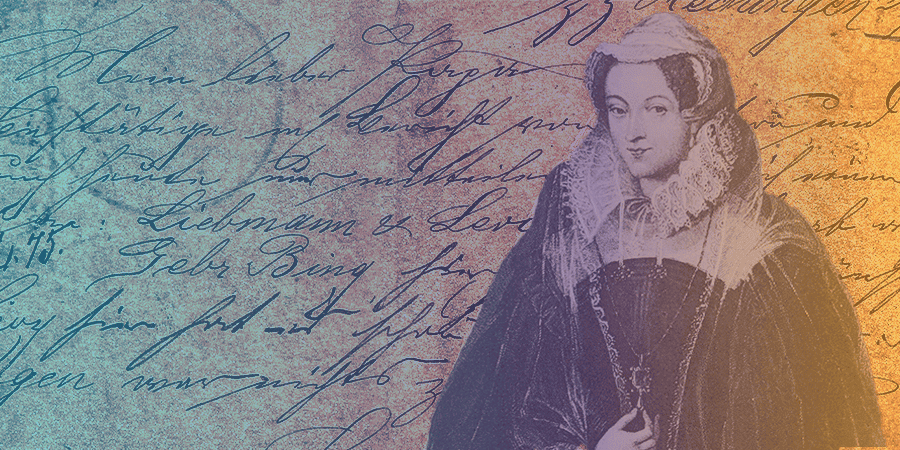A team of researchers, George Lasry, Norbert Biermann, and Satoshi Tomokiyo, has successfully deciphered 57 encrypted letters written by Mary, Queen of Scots, dating from 1578 to 1584.
This discovery is being hailed as the most significant find regarding Mary in over a century. The letters were found in the French National Library, catalogued as Italian texts from the first half of the 16th century.
Dr. John Guy, a fellow in history at the University of Cambridge and author of a 2004 biography of Mary, Queen of Scots, called the findings a “literary and historical sensation.”

The decryption project involved a combination of manual research and computerized cryptanalysis, which identified the plaintext language as French, not Italian as previously assumed.
Mary’s Cipher System: A Complex Means of Communication
Mary, Queen of Scots, used more than 100 different ciphers in her correspondence.
Mary’s cipher system often masked individual letters with a single symbol; however, to bolster security, she employed homophones, allowing several symbols to signify frequently used letters.
Additionally, she concealed common words by utilizing symbols designated for months, locations, and names of individuals.
Lastly, to further obscure the content, she incorporated red herrings or “nulls” that knowledgeable recipients would disregard.
Shedding Light on Mary’s Struggles and Strategies
The decrypted letters reveal a mix of political discussions and personal complaints, reflecting Mary’s shifting strategies during her imprisonment.
She often wrote about her efforts to negotiate her release and her willingness to relinquish her claims to the English throne.
The letters also reveal her distrust of Sir Francis Walsingham and the Puritan faction at the English court.
Mary’s deteriorating personal circumstances, including financial difficulties and recurrent bouts of physical and mental illness, are also evident in her correspondence.
The letters provide valuable insight into how she maintained connections with her supporters despite the intense surveillance during her captivity.
The Mole in the French Embassy
The newly deciphered letters have confirmed the long-held suspicion of a mole within the French embassy who successfully passed letters to the English.
The survival of both ciphered letters and contemporary plaintext copies in English archives indicates the mole’s success throughout 1584.
The Impact on History and Scholarship
Dr. John Guy, a fellow in history at the University of Cambridge and author of a 2004 biography of Mary, Queen of Scots, called the findings a “literary and historical sensation.”
According to Dr. Guy, these new documents show Mary as a shrewd and attentive analyst of international affairs and will occupy historians of Britain and Europe and students of the French language and early modern ciphering techniques for years to come.
The Potential for More Discoveries
By deciphering Mary’s intricate cipher system, researchers have gained the means to potentially reveal additional hidden information within the numerous ciphered letters that may still be undiscovered.
Applying the code names for notable individuals and message carriers found in these decrypted letters to other pieces of Mary’s correspondence could disclose further details.
Moreover, additional investigation might establish if Mary herself created the ciphers or if they were representative of a prevalent style during that era, potentially prompting a reevaluation of the condemning evidence presented at her final trial.
This significant breakthrough in decryption could open doors to fresh insights about Mary, Queen of Scots, and her involvement in the intricate political dynamics of her era.
Tumultuous Life of Mary
Mary, Queen of Scots, was born on December 8, 1542, and became queen at just six days old following her father’s death.
Her early reign was marked by political turmoil, and she was sent to France to marry the Dauphin, Francis.
Upon his death, she returned to Scotland and faced a predominantly Protestant nation while remaining a Catholic.
Her marriages to Lord Darnley and then the Earl of Bothwell, believed to be responsible for Darnley’s murder, led to an uprising against her.
Mary was forced to abdicate in favor of her infant son, James VI of Scotland, and she sought refuge in England.
Her cousin, Queen Elizabeth I, perceived her as a threat and had her imprisoned for 19 years before executing her in 1587.
Article In a Snapshot
- 57 encrypted letters by Mary, Queen of Scots, have been deciphered by researchers, shedding new light on her life and political strategies.
- Mary used over 100 different ciphers in her correspondence, with a combination of manual research and computerized cryptanalysis being key to the decryption.
- The letters reveal her distrust of Sir Francis Walsingham, her efforts to negotiate her release, and her deteriorating personal circumstances.
- The findings confirm the presence of a mole within the French embassy who passed letters to the English.
- The decryption breakthrough may lead to more discoveries and a deeper understanding of Mary’s role in the complex political landscape of her time.








